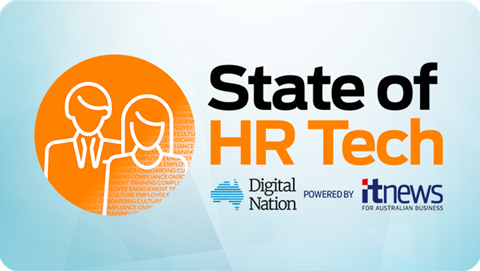Upskilling current staff has been the top way employers are combating the current talent gap, according to the Australian HR Institute (AHRI).

The AHRI surveyed 607 senior HR professionals and business leaders, examining a full scope of recruitment challenges and insights [pdf].
The report stated, “The most common employee responses to tackle recruitment difficulties are upskilling existing employees (30 percent), raising wages (23 percent) and improving benefits (22 percent).”
Findings from the report also found around one in five workers “are not proficient in their role and a majority (57 percent) believe skills gaps are having a negative impact on their organisation’s productivity”.
The June Quarterly Work Outlook also identified a dip in pay increase expectations with the report revealing staff assume a pay rise to reach 3 percent, down from 3.7 percent previously predicted for the 12 months to January 2025.
Other findings
The report also stated demand for labour will continue to grow strongly in the June 2024 quarter and that 32 percent of organisations reported an average annual turnover of 20 percent and above - rising 25 percent from the prior quarter.
It also stated that 37 percent of businesses intend to boost training investment across the year and the next, however, 6 percent intend to drop their training budget.
The findings follows as four of the top five skills gaps were identified in digital however, the latest report from RMIT found closing this divide is not prioritised in training budgets.
According to the report discoveries, 23 percent of businesses intend to execute redundancies in the June 2024 quarter – matching the same volume as the March quarter at 22 percent.
AHRI CEO Sarah McCann-Bartlett said “Conditions in the labour market are softer than they were six months ago, but these latest Work Outlook results suggest that job prospects remain positive.
“This is leading to persistent recruitment difficulties and relatively high levels of employee turnover in many Australian workplaces,” McCann-Bartlett said.
“The results underline the importance of speed to competency as part of the induction and onboarding process to help support productivity, and employee engagement and retention.”
McCann-Bartlett also said, “Organisations should also be giving serious thought to investing more in line management capability; especially given that evidence shows that a poor employee – line manager relationship can drive job dissatisfaction.
“It is also well-known that high-quality leadership and management results in higher productivity.”
McCann-Bartlett said businesses “may need to consider if their offering is sufficient, and whether they need to offer better pay, increased training or greater flexible working opportunities.”
The public sector was leading the charge both in investment in upskilling and wage growth, according to McCann-Bartlett.
“It may be that the public sector has decided this type of investment is necessary to improve productivity and it will be interesting to see the outcomes over time,” McCann-Bartlett said.


_(20).jpg&h=140&w=231&c=1&s=0)
.png&h=140&w=231&c=1&s=0)
_(33).jpg&h=140&w=231&c=1&s=0)
_(23).jpg&h=140&w=231&c=1&s=0)





 iTnews Executive Retreat - Security Leaders Edition
iTnews Executive Retreat - Security Leaders Edition
 iTnews Benchmark Awards 2026
iTnews Benchmark Awards 2026
 iTnews Cloud Covered Breakfast Summit
iTnews Cloud Covered Breakfast Summit
 The 2026 iAwards
The 2026 iAwards











_(1).jpg&h=140&w=231&c=1&s=0)



